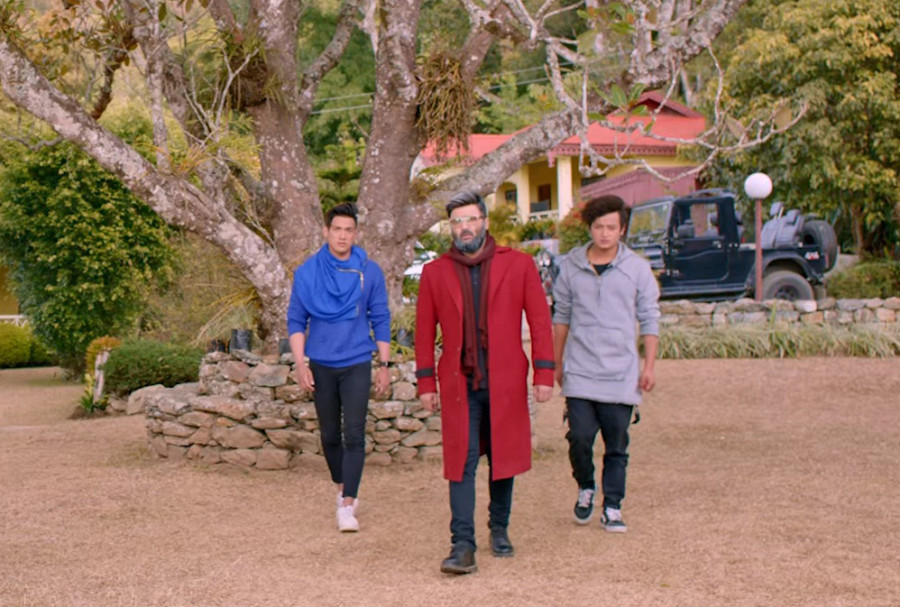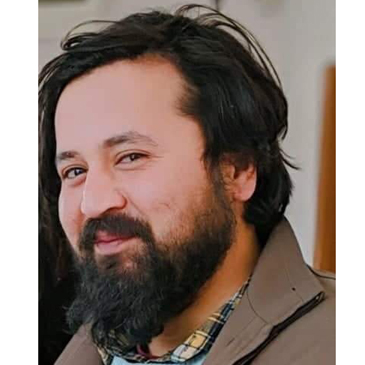Movies
Hajar Juni Samma is an exact representation of what’s wrong with Nepali filmmaking
There are problems everywhere in Bikash Raj Acharya’s latest movie. The biggest being the very foundation of the film—its screenplay.
Abhimanyu Dixit
Here’s how most Nepali movies work: there’s a likeable protagonist(s) (read hero) who jokes, sings, and dances. His major agenda is to woo the love of his life in the first half of the film. He does this with the help of his best friend, the token comic character whose entire world revolves around the hero and whose sole purpose is to crack a few jokes while communicating the hero’s intentions.
The interval brings in a major twist and the second half that follows turns abruptly intense. The jolly characters morph into emotional wrecks. We then move towards the climax where the antagonistic force is defeated but only after a rather unnecessary plot twist right before the ending.
On the technical side, the cinematographer is more concerned with making things pretty more than serving the story, background scores are flat and fixed for each character- jolly for the comic relief, and brooding for the main lead. Editing choices are safe and redundant: establish every scene with a drone shot, and cut to close-ups for dialogues and expressions. And not to forget the most expensive part of the whole film that needs to take place in exotic locations, the songs: one to introduce the character, one to fall in love, and one to convey heartbreak.
The new film Hajar Juni Samma, by Bikash Raj Acharya, the director of five Nai Nabhannu La movies, follows this narrative rigidly, offering nothing new.
There are problems everywhere in the movie. The biggest being the very foundation of the film: its screenplay. In the first scene Avantika (Swastima Khadka) goes to Siddhanta Kshetry’s (Aryan Sigdel) guitar shop to change her strings. Avantika notices Siddhanta is coughing excessively and offers advice because she is a medical student. Siddhanta then analyses the guitar and goes on an unsolicited rant about the similarities between boyfriends and guitar-strings, and that she shouldn’t be changing either so frequently.
Now, besides being severely offensive as the hero mansplains how a woman should live her life, the first scene establishes unique character traits: Avantika has a guitar and is a medical student while Siddhanta is an old pervert who has some throat issues. Ideally, these elements should contribute to the story but here, well it’s never mentioned again. Except Siddhanta is a pervert. That one should stand.
Now, the film’s story itself isn’t that bad. It follows Siddhanta’s adopted sons Atharba (Akhilesh Pradhan) and Nishant (Salon Basnet) who find love letters and gifts from Maya (Priyanka Karki) to their father and confront him about those. Siddhanta reveals that he spent only nine days with Maya and that too some 14 years ago in Sikkim. He also confesses to his sons that he loves her dearly, and that’s why he chose to remain single—to honour her memory.
Nishant and Atharba now take it upon themselves to unite the lovers, and go on a journey from Pokhara to Sikkim. On the way they meet Avantika who is also going to Sikkim because her boyfriend and her best friend are getting married.
From the outside, Bishal Chamling’s (also the producer) story sounds like an independent film measuring up to the standards of Piku or Finding Fanny. It has great potential of being an emotional journey—one with exotic locations—that leads to self-discovery of its characters.
But Chamling’s efforts have been wasted because the delivery is lazy. So is the screenplay and dialogue, written by director Bikash Raj Acharya and Samipya Timilsina. The latter is a journalist, therefore the script has excellent details, such as about the Nepali passport acquiring process, Indian Aadhar Cards, how you need permission from the Indian Embassy to take a Nepali number plated car into India, even how an Indian 1000-rupee note is not permissible in Nepal. But even these details can’t save a film with such incompetent writing.
Logic too falls apart in many places. For example, the makers expect us to believe that 14 years ago, which is 2005, the only mode of communication between Siddhant, from Pokhara, and Maya, from Sikkim, was letters. They completely forgo the fact that STD (Subscriber Trunk Dialing) and ISD (International Subscriber Dialing) services was still available in almost every grocery store in Nepal and Sikkim. Had this been a creative decision, the audience would have happily suspended disbelief. But no, this is the result of casual carelessness, zero creativity, and underestimating the audience’s basic common sense.
The dialogues also are condescending. The token comic character, Nishant, says things like, “There are three types of boyfriends for every girl: someone who is after her, a time pass, and marriage material”. There is a disgusting fart joke, and then, rhymes like “Breakup Parne ho, Afutira Sarne ho” (Break couples apart and pull the girl towards yourself).
The film is marketed as an ensemble featuring Aryan Sigdel, Swastima Khadka, Sanchita Luitel, Salon Baset, Priyanka Karki, and Akhilesh Pradhan. Now, all of these actors are traditionally good looking, and some of them, especially Swastima is a gem of an actor. But if you restrict their capabilities as an actor, by casting them in such confining roles, then you don’t do justice to the actors’ talent.
The current crop of commercial Nepali film makers have a certain comfort zone, as is evident with Hajar Juni Samma’s Bikash Raj Acharya, and they sadly seem to have zero intentions of leaving this zone. They make films with the sole intention to sustain themselves, they treat films as only business and without understanding the great power of cinema or the responsibility of its social impact. For things to change, new makers with new ideas and forms of storytelling must be encouraged; otherwise we’ll just be stuck with this same form of filmmaking—hajar juni samma—for a thousand lifetimes.Hajar Juni Samma
1.5 out of 5
Actors: Aryan Sigdel, Swastima Khadka, Priyanka Karki, Salon Basnet
Director: Bikash Raj Acharya
Story/ Producer: Bishal Chamling
Screenplay/ Dialog: Bikash Raj Acharya, Samipya Timilsina




 13.12°C Kathmandu
13.12°C Kathmandu











